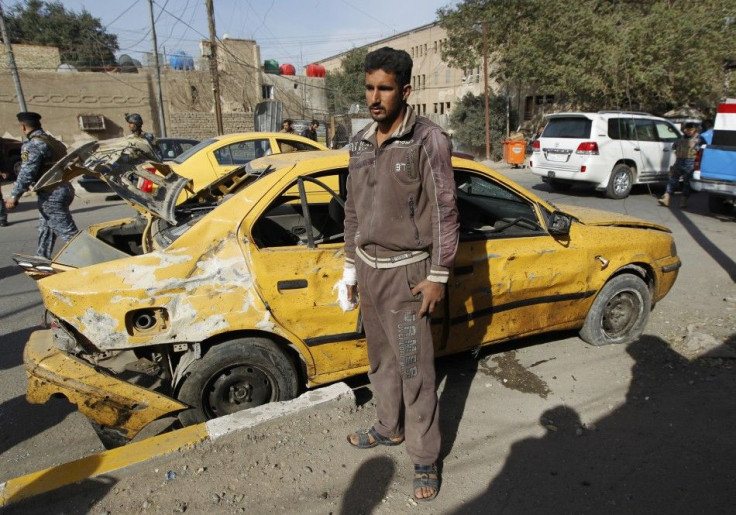Iraq: Dozens Killed in New Wave of Sectarian Violence

Another wave of sectarian violence has killed dozens and wounded scores of people across Iraq, according to reports.
At least 50 Iraqis have died in attacks that targeted Shia Muslim areas, particularly at police checkpoints.
Since the departure of U.S. troops in December after almost nine years of war, such attacks have escalated.
In the capital of Baghdad, nine people were killed in the Karrada district. Other attacks took lives in and around Baghdad, as well as other parts of Iraq, including Mosul, Kirkuk and the province of Salahuddin.
Jane Arraf, an al-Jazeera correspondent in Iraq, described the violence in Baghdad: The blasts seemed to happen at almost the same time, in what are being seen as coordinated attacks. They happened in other cities as well as Baghdad. In Tikrit, Taji, and Hilla, and the common denominator seems to be that they're all targeting Shia areas, and security installations.
While no group has taken responsibility for the bombings, they are clearly designed to destabilize the fragile regime of Prime Minister Nouri al-Maliki – a Shia who has moved against Sunni Muslim members of government.
Maliki has targeted the most prominent Sunni politician in the country, Vice-President Tariq al-Hashemi, who is currently in hiding in the semi-autonomous Kurdish-dominated north after an arrest warrant was issued for him.
Hashemi has been charged with financing death squads – a charge he denies.
Shia government officials believe Hashemi, or entities close to him, are behind the wave of attacks.
However, some Iraqi parliamentarians blamed al Qaeda for the violence, claiming they are designed to prevent an Arab League summit scheduled for March in Baghdad.
The terrorist Al Qaeda organization is trying to send messages to its supporters that it is still operating on Iraqi soil, and that it has the capability to strike in the capital and the cities and both big and small regions, the Iraqi interior ministry said in a statement.
© Copyright IBTimes 2024. All rights reserved.











